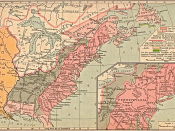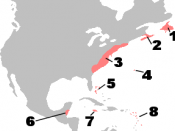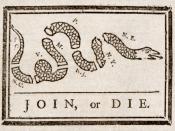'Origin of the American Revolution: 1759-1766' is the outgrow of an effort to discover why the principal British colonies in North America were on the point of rebellion in 1765-1766, ten years before the outbreak of the American Revolution. The author, Bernhard Knollenberg, a lecturer at Yale University, previously published biographies of Lord Baltimore and Lord Cornwallis and many other studies related to different events of the American Colonial Period. It is worth pointing out that Knollenberg wrote this book in 1964-1965, during a period of profound reforms and changes in the American society, shacked after the Cuban Missile Crisis, Kennedy's assassination and Martin Luther King's marches for Human Rights. Overall, Knollenberg wrote a valuable book, respecting the historical truth by balancing the British and the American views about the events, even though it lacks in documents from the frontier communities to help the reader fully understand the impact of the British provocative acts on the American Colonies and their inhabitants.
'Origin of the American Revolution:1759-1766' makes a chronological treatment, chapter by chapter, of the provocative British measures that touched the American colonies. The first one that is studied by Knollenberg is the Privy Council's disallowance in 1759 of an important Virginia act accompanied by an order to the Governor of the colony forbidding him to sign any bill passed by the legislature of the colony repealing or amending an existing act, unless the bill contained a clause suspending its operation until approved by the Privy Council in England. Since many acts would be wholly or nearly useless if suspended until thus approved, this order struck at the very roots of self-government in Virginia. In the same year, the activities of Thomas Secker, Archbishop of Canterbury, assisted by the Society for the Propagation of the Gospel in Foreign Parts,


